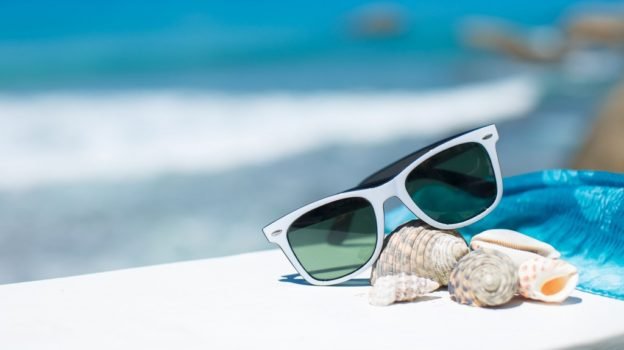It’s probably a good guess that most of you choose sunglasses by how they look and feel. But the most important feature to consider is how well they shield your eyes from the ultraviolet rays, as well as the blue light (high-frequency visible light. particularly damaging to the internal eye tissues).
Chronic ultraviolet (UV) exposure results in a range of eye conditions, including cataracts. benign growths on the surface of the eye, skin cancer on the eyelid and around the eyes. and even melanoma of the eye itself.
Sun damage is cumulative: the more time you spend outdoors with your eyes unprotected. the greater the risk to the eye. The good news: it’s not hard to find affordable sunglasses that are fashion – forward and protective.
Here’s your guide to pick the right pair, this summer.
Look for UV protection
A tag or sticker that simply says “blocks UV” or ‘UV-absorbent”, for instance. is meaningless because it doesn’t tell you how much UV is blocked. Better choices are sunglasses that claim to block most or all UV (“99-100% UV absorbent” or “UV 400″ for example). though there is no independent verification for this.
Check A Guide to Sunglasses by glaucoma.org

One way to ascertain that your sunglasses are blocking most or all UV light is to have an optician test them using a photo spectrometer (often called a UV meter). It’s a good idea to have old sunglasses tested. since some of the UV coating. if one was applied. can be lost over time through scratches and abrasions. An optician can also coat sunglasses. If necessary.
Both clear glass and plastic lenses naturally filter out some UV light (polycarbonate plastic. in particular. blocks nearly all UV).
Darker lenses don’t mean greater UV protection. In fact, unless darker lenses are fabricated to block UV light. they can be more harmful than wearing no sunglasses. because they can cause pupils to dilate. allowing more UV light to enter your eyes.
The larger the frames. the better. Wrap-around glasses block light coming from the side. but may cause distortion.
If you wear prescription glasses. you can buy prescription sunglasses or glasses with photo chromic lenses (lenses which darken and lighten automatically depending on the ambient light).
Even on overcast and hazy days. your eyes can be exposed to significant UV radiation. So don’t target to put some trendy sunglasses on your health checklist.



